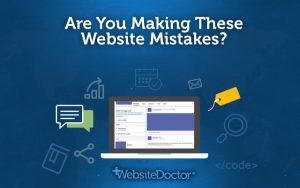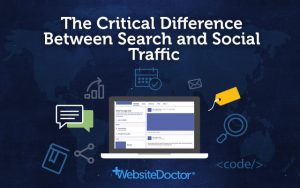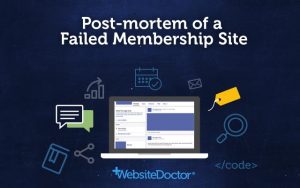I’m pretty sure that you’ve already heard a lot about SEO search engine optimization. This is the adoption of a bunch of procedures to analyze your site’s behavior and change its layout structure or navigation with the objective of being indexed by search engines, and hopefully be listed in a privileged position. With all the tips that you certainly have found on the Internet so far, you may ask yourself: To see some effective results in my own website where should I start ?
Well, a website needs to pay attention to a few content, design and code requirements to be placed in a good position at any search engine’s results. Therefore, we can classify this process into four basic steps, in the following order:
1. Define the website’s goals and target audience
This first step is planning the optimization (and sometimes even the development process). You must define your site’s goals, whether it is a brand new site or an existing one which needs a better placement.
- Select some keywords and create a short description of the website’s page(s). Think about a selection of the main keywords of your website and a short description about it. If you have a complex website, with a lot of pages and sections, it’s highly recommended that each page has it’s own keywords group and description. This information is important to create the so called metatags, which is information partially used by search engine’s robots to classify your website as relevant or not to the user that searches for something related to what you offer on the Internet. The keywords selection is a very specific to each website, a good place to start is the Experts Guide to Keywords Research for more advice on this topic.
- Make your pages content richer. Put the keywords explained above into your webpage content. Write some good text about your company, products and services organized in sections with titles, subtitles, paragraphs and lists. Of course, each page that offer a different content must have it’s own keywords, related to what you are offering.
- Make links to your own pages. Have you already noticed that some websites repeat their menu links in the footer? This is an acessibility resource to the user that navigate into your website. Besides, the repetition of your links helps with the relevancy of your site on search engines: the more links you have pointing to some page in your website, the more important it became to search engines! So, each page can have links pointing to all the other pages of your site.
- Choose an appropriate title each page. The page title has a huge importance in the optimization process, because it’s the first thing the user will see in the results list of the search engines. Don’t choose a long title, because the last words may be cut-out in the user’s browser. The limit of 60 characters is a good reference. The title must be coherent to the page’s content and, of course, show your important keywords.
2. Promote the site
- Find partners links. Link and be linked! Make good partnerships with websites related to yours and trade links with them. If you make a link pointing to an external page and this same page points a link to your site, you share and increase your popularity on the web. Just take care with links overage. If you point links to a lot of sites that don’t have anything to do with yours, your site can be decharacterized and your optimization efforts can be damaged.
- Manage pay per click advertising. If you want immediate results on positioning, reserve part of your budget to invest in pay per click advertising. The more you pay for a keyword, the more your announcement will be shown at the first pages and positions to an user that searchs for that keyword. The most popular pay per click advertising service is Google Adwords, but there is also Yahoo Search Marketing and Microsoft Search Advertising.
3. Don’t abandon your website: give it a periodical maintenance
- Brand new information. It is important to keep your website updated with new pages, or with the addition of new content to existing pages. This way search engines’s robots won’t think that your site is old and outdated. You can provide news about your company, a product or anything else that could be relevant to the users. If you use a CMS like WordPress to manage your site, this task is pretty simple and fast.
- Quality control. Verify broken links, images lacking the ALT atribute (which provides an alternate text or description about that image to the user) or even broken images. This way, the search engines can index your site correctly and you offer a quality site to the visitors.
4. Analyse the website’s stats
After all the optimisation efforts, it is crucial to check your website’s stats and your competitors’ accomplishment in search engines. You can use this techniques also in the planning step, to check the numbers before and after the optimization process.
- Ranking check. Search for different keywords related to your site, of course in different search engines and take note of where your site is located in the results list. Do the same with your competitors’ site to evaluate their market share. This research allows you to realize where to concentrate more optimization efforts and what your competitors are doing that can be good or bad.
- Popularity link check. Do you know how many links the search engines results points to your site? How many sites have links to yours? And what about your competitors? Alexa has a traffic and ranking analysis system, where you can check your website’s link popularity, most visited pages and even a chart that allows you to compare the traffic of your site with the traffic of 5 other sites.
- Statistics. If you have a system that provides your site’ stats, explore all the mentioned informations, such as number of unique visitors, total visitors, returning visitors, pageviews etc. It helps you to stay informed about your site’s accomplishment. An example of a great metrics analysis system for free is Google Analytics.
I hope that gives you an overview of where and how to start the optimization process!




